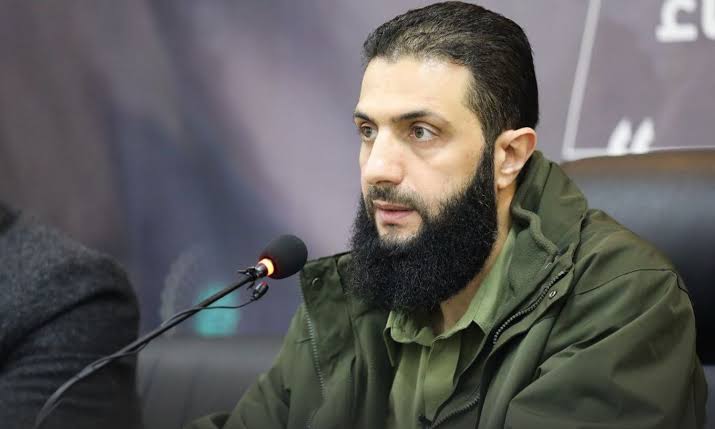In a seismic shift in the Syrian civil war, opposition forces led by Abu Mohammed al-Julani and his group Hayat Tahrir al-Sham (HTS) captured Aleppo, Syria’s second-largest city, after the abrupt collapse of government forces loyal to President Bashar al-Assad.
This swift victory has placed al-Julani at the forefront of the Syrian conflict, with his leadership and HTS’s actions drawing both attention and controversy.
Al-Julani, born Ahmed Hussein al-Sharaa in Riyadh, Saudi Arabia, in 1982, emerged from a complex history of jihadist affiliations.
After years in al-Qaeda’s network and leading the al-Nusra Front in Syria, he distanced himself from transnational jihadism to focus on establishing a state governed by HTS’s interpretation of Islamic law within Syria.
The Rise of Hayat Tahrir al-Sham
HTS, which al-Julani formed in 2017 by merging several opposition groups, has become Syria’s most dominant armed faction. It administers the Idlib governorate through the Syrian Salvation Government, providing civil services such as education, healthcare, and infrastructure.
However, its governance is marked by allegations of heavy-handedness. Activists and local monitors report forced disappearances and violent crackdowns on dissent, raising concerns over its treatment of communities under its rule.
From Transnational to National Ambitions
Al-Julani’s journey began in Iraq in 2003, where he joined al-Qaeda in Iraq, later led by Abu Bakr al-Baghdadi. Following his imprisonment by US forces and release in 2011, al-Julani returned to Syria to establish al-Nusra Front as al-Qaeda’s Syrian affiliate.
Over time, he parted ways with al-Qaeda, focusing on a national agenda and rebranding his group as Jabhat Fateh al-Sham before it evolved into HTS.
Analysts believe this shift was strategic, aimed at garnering local support and positioning HTS as a legitimate alternative to Assad’s government. Al-Julani’s leadership has sought to balance his group’s Islamist principles with the political realities of governing Syria’s opposition-held areas.
The Aleppo Victory and Its Implications
The capture of Aleppo signifies a critical juncture in the Syrian conflict. HTS has pledged to protect religious and ethnic minorities, an apparent attempt to soften its image. However, scepticism remains as the group, labelled a terrorist organisation by the UN, Turkiye, the US, and the EU, seeks to consolidate its control and expand its influence in Syria.
Hassan Hassan, an expert on Levantine armed groups, notes that al-Julani’s strategy appears to involve presenting HTS as a credible governing body and a potential partner in counterterrorism efforts, despite its controversial past and designation.
The Road Ahead
As HTS prepares to push further south, the international community watches closely. Al-Julani’s efforts to rebrand his group may face obstacles from its history and the ongoing allegations of human rights abuses.
Yet, with Aleppo under opposition control for the first time in years, the Syrian war’s dynamics have shifted, and al-Julani’s leadership will undoubtedly shape its next chapter.
Source: With inputs from Al Jazeera




-20260304091720.webp)



-20260303080739.webp)
-20260302065048.webp)

















-20260225072312.webp)





-20260228064648.jpg)
